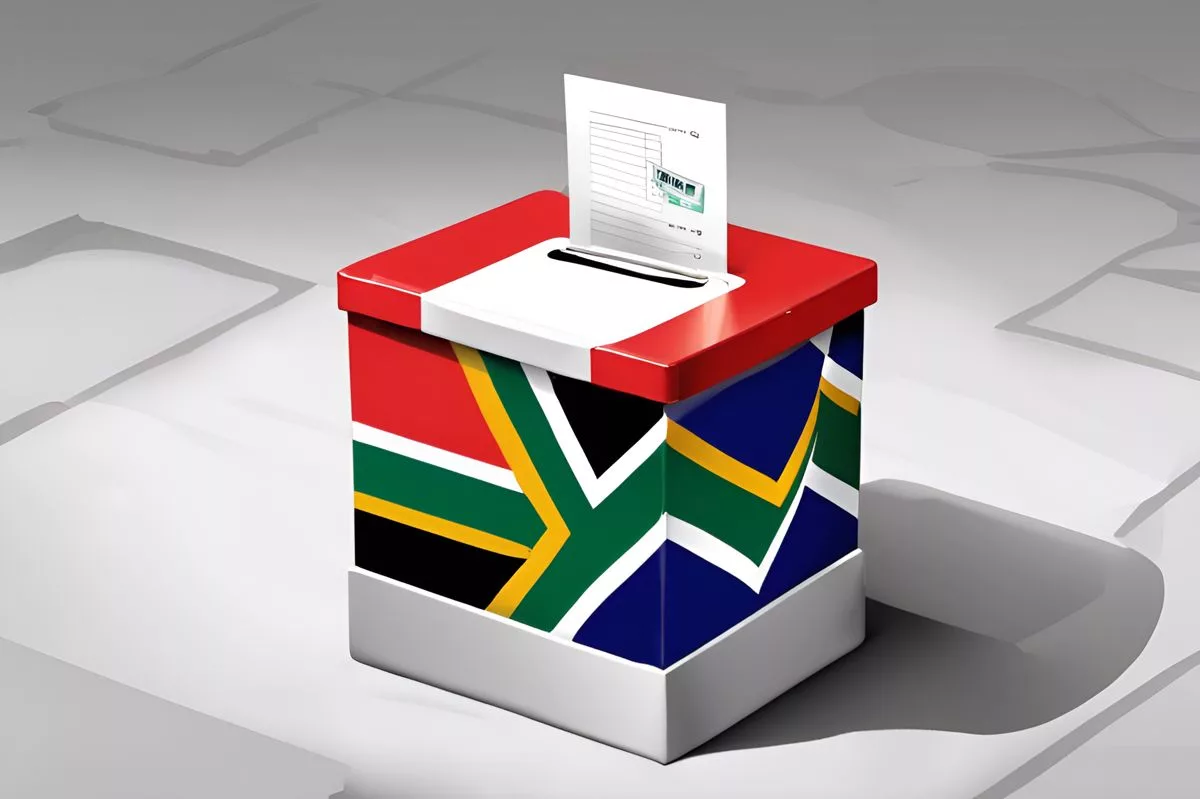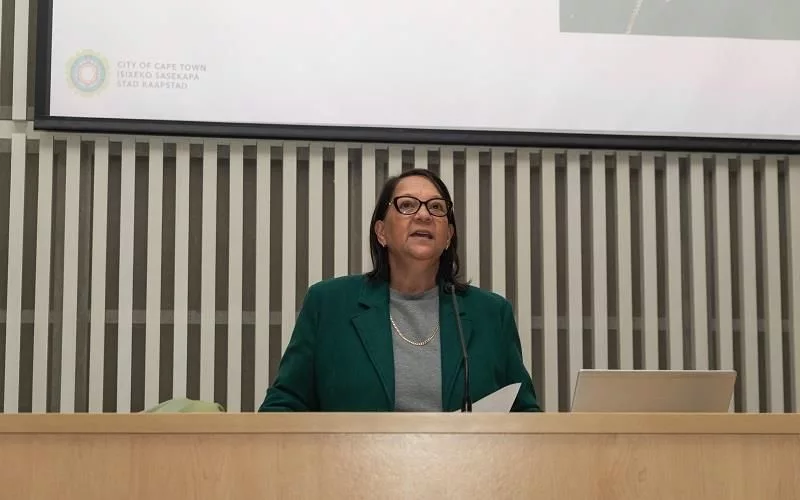Xolile George, the Secretary to Parliament, emphasized the significance of citizens’ dedication to molding the future of the nation while delivering a moving speech celebrating the democratic process and thanking all those who facilitated it in South Africa. He expressed gratitude to Chief Justice Raymond Zondo and the Independent Electoral Commission, as well as the over 16 million eligible voters who participated in the elections. George also recognized the substantial representation of women and youth in the National Assembly and highlighted the well-orchestrated plan for the administrative process and readiness to tackle the challenges ahead.
A Tribute to Democracy: South Africa’s Progressive Parliamentary Journey’s Xolile George extolled the merits of the democratic process and expressed appreciation for Chief Justice Raymond Zondo’s unwavering commitment and the Independent Electoral Commission’s exceptional conduct of the elections. George expressed gratitude to the more than 16 million eligible voters who participated in these elections and emphasized the significance of their dedication to molding the future of the nation. He also recognized the substantial representation of young individuals within the National Assembly and the well-orchestrated plan for the administrative process.
The Democratic Process in South Africa
In a moving speech before an esteemed gathering, Xolile George, the Secretary to Parliament, extolled the merits of the democratic process and profoundly thanked everyone who facilitated it, from the Chief Justice of the Republic of South Africa to the countless voters who exercised their right to vote. George’s speech, delivered on the acceptance of the candidates list from Chief Justice Raymond Zondo, signified a critical milestone in South Africa’s democratic voyage.
George expressed sincere appreciation for Chief Justice Raymond Zondo’s unwavering commitment, whose office adeptly maneuvered the intricate constitutional process of transferring the roster of designated National Assembly members. He also lauded the Independent Electoral Commission (IEC) for their exceptional conduct of the elections. They enabled millions of citizens to exercise their democratic rights, ensuring their opinions were acknowledged and their decisions were respected.
Acknowledging the Role of Citizens
The crux of George’s address was an intense expression of gratitude to the more than 16 million eligible voters who participated in these elections. Their unwavering engagement, despite difficult weather conditions, was a representation of their dedication to molding the future of the nation. George emphasized the significance of this, asserting the Parliament’s responsibility to ensure the new assembly advances the aspirations of its citizens towards an enhanced future.
George also shed light on the commendable representation of women in the National Assembly, with 45% of the members being women at the conclusion of the sixth parliamentary term. Despite a slight decline in this figure in the recent list, George reaffirmed the National Assembly’s commitment to promoting gender balance. This dedication has elevated South Africa in the Inter-Parliamentary Union (IPU) rankings for parliaments with the highest representation of women, a testament to the nation’s dedication to gender equality and inclusive governance.
Youthful Representation in the Assembly
George also recognized the substantial representation of young individuals within the National Assembly. Almost half of the assembly’s members ranged between the ages of 20 to 50 years. George believes that this demographic shift aligns the assembly more closely with the population, bringing fresh viewpoints, innovative solutions, and a vibrant approach to addressing societal challenges and ambitions.
The Administrative Process and Preparedness for Future Challenges
George went on to describe the administrative process that would ensue after the handover. This process includes ensuring that the elected members are efficiently and accurately inducted and prepared for the initial sittings of the National Assembly and the National Council of Provinces (NCOP). It also involves orientation sessions to acquaint new members with parliamentary procedures, roles, and responsibilities.
The well-orchestrated plan also took into account logistical arrangements for members commuting from remote regions. Provision of needed resources and support to ensure a seamless transition into their parliamentary roles is of utmost importance.
In anticipation of the first sittings, a sturdy voting infrastructure was established to facilitate the smooth progression of the elections for the new Presiding Officers and the President of the Republic. Steps were also taken to ensure the security, transparency, and integrity of these processes, following the highest standards of parliamentary procedure.
New MPs would be initiated and tutored through a well-structured program designed to provide them with the crucial knowledge and skills pertinent to their roles. This comprehensive approach ensures that new MPs are prepared to execute their duties effectively and efficiently.
With all necessary preparations in place, George expressed his readiness to tackle the challenges and responsibilities that lie ahead. He reiterated his commitment to preserving the ideals of democracy, serving the people of South Africa diligently, and ensuring that their electoral choices are voiced in Parliament for the next five years.
Concluding Remarks
In conclusion, George’s address was a powerful homage to the flourishing democratic process in South Africa, echoing the country’s dedication to inclusive representation, transparency, and fairness. As he expressed his gratitude for the faith and support entrusted upon them, he pledged to construct a Parliament that truly embodies the voices and choices of the people, propelling collective aspirations towards a prosperous and equitable future.
1. What is the significance of citizens’ dedication to molding the future of the nation?
The Secretary to Parliament, Xolile George, emphasized the importance of citizens’ dedication to molding the future of the nation in a moving speech celebrating the democratic process in South Africa.
2. Who facilitated the democratic process in South Africa?
Xolile George expressed gratitude to Chief Justice Raymond Zondo and the Independent Electoral Commission, as well as the over 16 million eligible voters who participated in the elections.
3. What is the representation of women in the National Assembly?
At the conclusion of the sixth parliamentary term, 45% of the members of the National Assembly were women. Despite a slight decline in this figure in the recent list, the National Assembly remains committed to promoting gender balance.
4. What is the representation of young individuals in the National Assembly?
Almost half of the members of the National Assembly ranged between the ages of 20 to 50 years. George believes that this demographic shift aligns the assembly more closely with the population, bringing fresh viewpoints, innovative solutions, and a vibrant approach to addressing societal challenges and ambitions.
5. What is the administrative process that would ensue after the handover?
The administrative process includes ensuring that the elected members are efficiently and accurately inducted and prepared for the initial sittings of the National Assembly and the National Council of Provinces (NCOP). It also involves orientation sessions to acquaint new members with parliamentary procedures, roles, and responsibilities.
6. What is the commitment of Xolile George towards democracy in South Africa?
Xolile George expressed his commitment to preserving the ideals of democracy, serving the people of South Africa diligently, and ensuring that their electoral choices are voiced in Parliament for the next five years.












